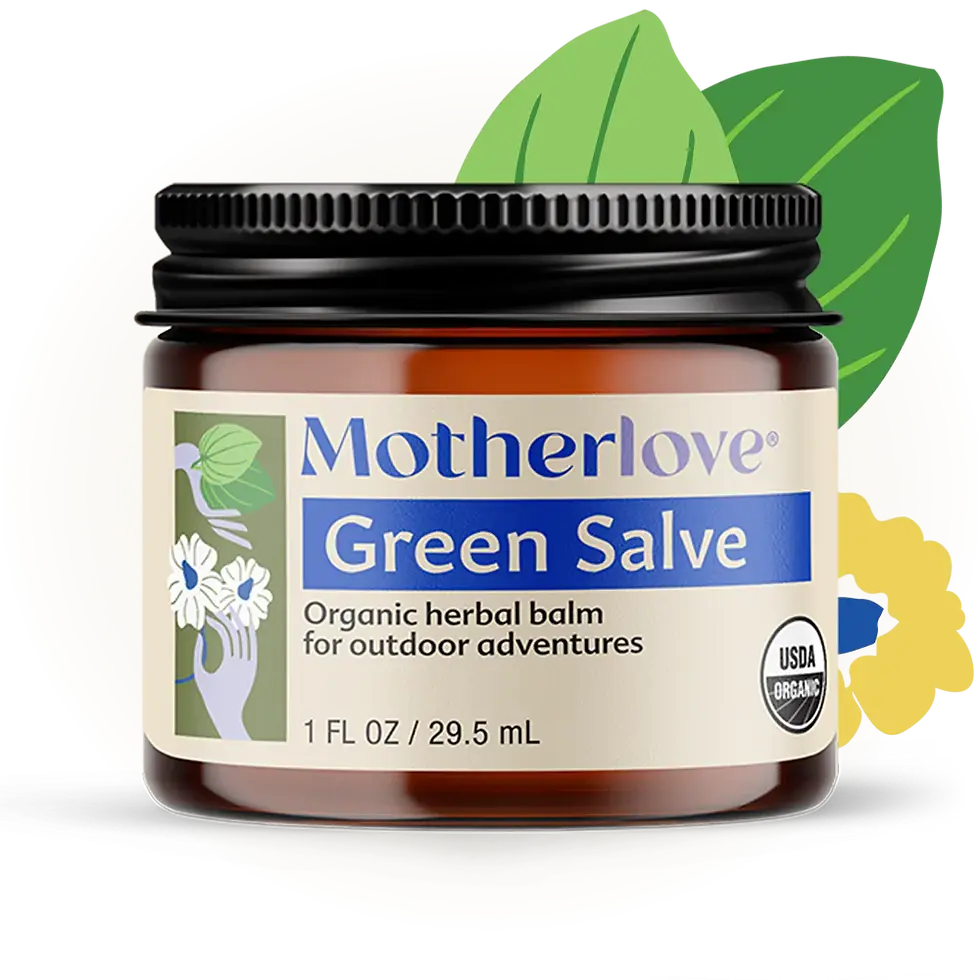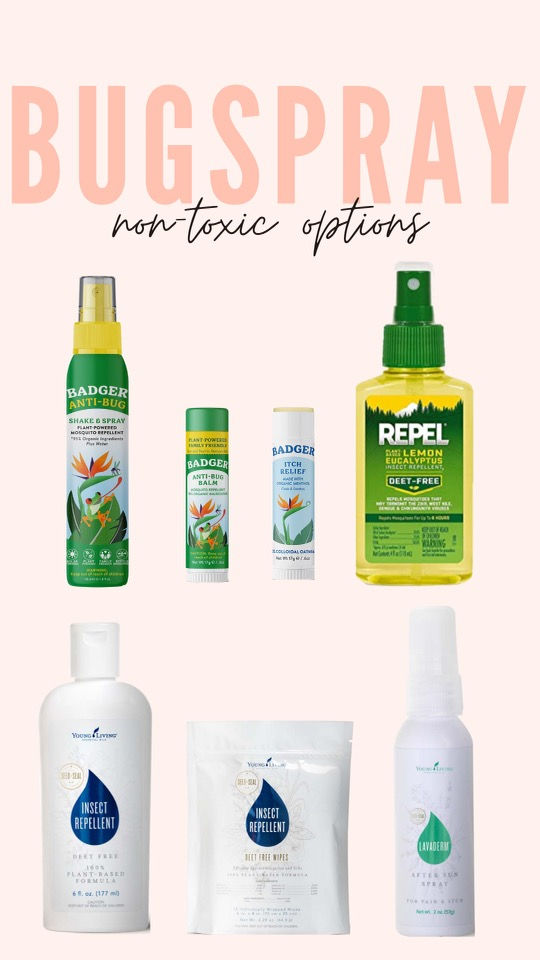Tick Season has Arrived; Be Prepared!
- Jessica Haizman

- Jun 4, 2024
- 5 min read
Updated: Jun 5, 2024
So one day we went on a family walk (pre-DAX) and when we got home I was breastfeeding Adalynn.... and there was a TICK CRAWLING ON MY BOOB! I was horrified, and in that same week, we pulled one off of Bali, Adalynn, and another off my husband.
Ticks are worse than ever before, so I asked my followers to send all the recommendations so I could create a resource to help all of us feel more prepared. *All of these recommendations are safe non-toxic options from quality brands.
I make a percentage of money off the affiliate links provided in this post at no additional cost to you; thank you for your support.
If you plan to be in areas where ticks are found more commonly, make sure to cover up and ALWAYS perform tick checks after the walk. (We like to do a quick check before we get in the car, and then do a full body check when we get home- tedious but so worth it!
1. Protecting Your Family from Ticks
The top recommended product for repelling ticks was to reach for some good quality essential oils (not the phony stuff you find at Marshall's- we are talking 100% pure-grade essential oils). My favorite place to shop is Young Living!
You can dilute these oils with an almond or coconut oil and add them directly onto the skin or you can mix it all together in a spray bottle and spray on any exposed skin!
-Cedarwood
-Citronella
-Lavender -Lemongrass oil -Eucalyptus -Orange oil -Cinnamon oil
A more convenient an easy option is buying a mixture of oils in these premade repellents
Hats, long sleeves, and high socks are good ways to keep the ticks from attaching to your skin as well!
2. Defend Your Home

Defending your home from ticks doesn't always require harsh chemicals or pesticides! Instead, you can turn to nature's own defenses by incorporating certain plants and organic materials into your yard that naturally repel these pests. Growing aromatic herbs such as sage, oregano, and thyme not only adds to your kitchen's spice collection but also acts as a natural deterrent for ticks. These herbs produce fragrances that ticks find unpleasant, thus keeping them at bay.
Additionally, scattering lemon and orange peels around your yard can be an effective strategy. The strong citrus scent is offensive to ticks, helping to reduce their presence without the use of toxic substances. By integrating these simple, eco-friendly solutions into your landscaping, you can create a safer, tick-resistant environment around your home, protecting both your family and your pets from potential tick-borne illnesses! How awesome is that?
3. Protect Your Dogs!
Protecting your furry friends from ticks is crucial for their health and wellbeing! Natural remedies can be highly effective in preventing tick infestations and ensuring your dogs stay safe and comfortable. One simple and natural method is to apply a few drops of cedar oil or lavender oil to your dog's collar or bandana. Both oils are known for their tick-repelling properties and will help keep the pests at bay without the use of harsh chemicals.

Neem oil is another potent natural repellent that can be applied directly to your dog's coat or added to their shampoo. It's not only effective against ticks but also against a wide range of other pests, making it a versatile option for pet protection!
For a holistic approach, consider using an apple cider vinegar (ACV) bath or spray. Mixing ACV with water and spraying it onto your dog's coat can help repel ticks thanks to its high acidic content. It's safe for use on pets and also helps improve their skin and coat health.
Lastly, keeping a tick key on hand is essential for immediate tick removal. Tick keys are specially designed to remove ticks safely and efficiently, reducing the risk of infection. Prompt removal is key, as it lessens the chances of disease transmission from the tick to your pet. During tick season, you will want to check them daily for ticks so that in the chance you find one you are able to promptly remove it!
3. Tick Bite Treatment
When dealing with tick bites, natural treatments can be both effective and gentle,
minimizing the risk of further complications. Homeopathic remedies offer a holistic approach to alleviate symptoms and aid in healing.
For instance, Ledum palustre is a widely recommended homeopathic remedy for puncture wounds, including those caused by tick bites, and is thought to help combat the effects of any potential toxins injected by the tick.
Additionally, Apis mellifica can be used if the bite area becomes red, swollen, and feels hot, resembling a bee sting.
Besides homeopathic medications, applying a paste made from baking soda and water directly to the bite can help soothe itching and inflammation. Essential oils like tea tree or lavender, diluted with a carrier oil, can also be applied topically to reduce irritation and act as natural antiseptics.
It's important to monitor the bite site for signs of infection or any unusual reactions, especially in areas where tick-borne diseases are prevalent. Always consult with a healthcare provider for persistent or worsening symptoms.
Incorporating a green salve can also

help treat tick bites.
Green salve, typically made from a blend of herbal ingredients like comfrey, plantain, and St. John’s Wort, is known for its soothing and healing properties.
These herbs work together to reduce inflammation, soothe itching, and promote the healing of the skin. When applied to a tick bite, green salve can help prevent infection and speed up the recovery process by forming a protective barrier over the wound and nourishing the affected area with herbal compounds.
Just dab a small amount of salve directly on the bite after cleaning, and reapply as needed. This natural remedy can be a valuable addition to your first aid kit, offering a gentle yet effective treatment option for managing tick bites (and other bits and cuts)!
For ALL of my non-toxic, homeopathic tips and recommendations, download my First Aid Kit and Medicine Cabinet Guide for Babies and Toddlers!
Conclusion
Managing tick exposure naturally involves a combination of proactive prevention and attentive treatment. By integrating natural repellents such as cedar oil, lavender oil, and neem oil into your routine, along with the strategic use of homeopathic remedies like Ledum palustre and Apis mellifica, you can effectively safeguard yourself and your pets from ticks!
Remember, the key to effective tick management is vigilance—regularly check for ticks, promptly remove any that are found, and always monitor for symptoms of tick-borne diseases. By incorporating these natural strategies, you can enjoy the outdoors with your family and pets, confidently!
Xo,
Jess
L E T ' S B E F R I E N D S !















Comments